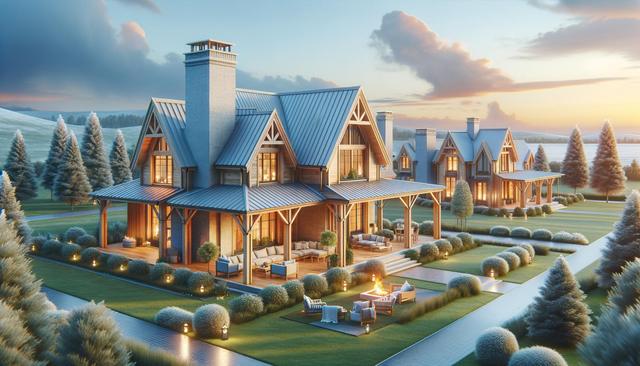Your Guide to Prebuilt Homes: Types, Costs, Benefits, and Sustainable Living Trends
Curious about how prebuilt homes are reshaping modern homeownership? This guide explores the growing popularity of modular, manufactured, and tiny homes—offering insights into their benefits, costs, and eco-friendly features for today’s forward-thinking buyers.

Exploring the Different Types of Prebuilt Homes
Prebuilt homes, a rising trend in modern construction, offer diverse options for homebuyers. Among the most popular are modular homes, manufactured homes, and tiny homes. These types of homes differ in construction methods and design, offering various benefits that appeal to a wide range of buyers. Modular homes are constructed off-site in factory settings and then transported to the property for assembly. This method ensures efficiency and precision in building. Manufactured homes, also created in factories, are built on a permanent chassis and can be moved to a different location if needed. Tiny homes, while the smallest of the three, offer a minimalist lifestyle and can be either mobile or stationary. Each type of prebuilt home caters to different needs and lifestyles, making them a versatile choice for those seeking alternatives to traditional home construction.
Understanding the Costs of Prebuilt Homes
One of the primary attractions of prebuilt homes is their cost-effectiveness compared to traditional site-built houses. The pricing of these homes can vary widely depending on size, materials used, and customization options. Modular homes, being highly customizable, can have a broad range of costs, making them accessible to various budget levels. Manufactured homes are known for being among the most affordable housing options, providing quality living spaces at lower prices. Tiny homes, due to their reduced size, often come with lower costs both in terms of initial purchase and ongoing maintenance. Financing options for prebuilt homes typically include traditional mortgages, personal loans, and specialized financing plans offered by manufacturers, making it easier for buyers to find a suitable financial solution.
Benefits of Choosing Prebuilt Homes
Opting for prebuilt homes brings a range of benefits that appeal to modern homeowners. One of the standout modular homes benefits is the shortened construction time since they are built off-site and assembled quickly on location. This reduces the disruptions commonly associated with traditional home building. Prebuilt homes also offer flexibility in design and layout, allowing homeowners to customize their living spaces to meet specific needs and preferences. Additionally, these homes are constructed in controlled environments, resulting in better quality control and fewer construction delays due to weather conditions. Manufactured and modular homes are known for their energy efficiency, incorporating energy-saving technologies and sustainable materials that align with current eco-friendly trends.
Embracing Sustainable Living with Prefab Houses
As environmental awareness grows, sustainable prefab houses have become a significant draw for eco-conscious buyers. These homes often incorporate energy-efficient systems and renewable materials, contributing to reduced carbon footprints. Off-site home construction further minimizes waste and resource use, as precise measurements and efficient production methods are employed. Many prebuilt homes also feature solar panels, energy-efficient appliances, and high-quality insulation to maximize energy savings. Buyers interested in sustainable living will find prefab houses to be an appealing option, aligning with the values of reducing environmental impact and promoting a greener lifestyle.
The Minimalist Appeal of Tiny Home Living
Tiny home living offers a unique lifestyle that emphasizes simplicity and minimalism. These compact homes maximize space efficiency, encouraging homeowners to prioritize essential belongings and reduce clutter. The tiny home living guide often highlights the benefits of reduced living expenses, including lower utility bills and maintenance costs. Moreover, tiny homes can be more environmentally sustainable due to their smaller footprint and the use of sustainable building materials. Whether used as a primary residence, vacation home, or additional living space, tiny homes offer a flexible and cost-effective solution for those seeking a simpler way of life without sacrificing comfort.
Conclusion: The Future of Prebuilt Homes
Prebuilt homes are reshaping the landscape of homeownership by offering diverse options that cater to different lifestyles, budgets, and environmental concerns. Whether interested in the modular home’s efficiency, the affordability of manufactured homes, or the minimalist lifestyle of tiny homes, there is a prebuilt solution available for every forward-thinking buyer. With a focus on sustainability and cost-effectiveness, these homes present a compelling alternative to traditional construction, making them an excellent choice for those ready to embrace modern, innovative living.